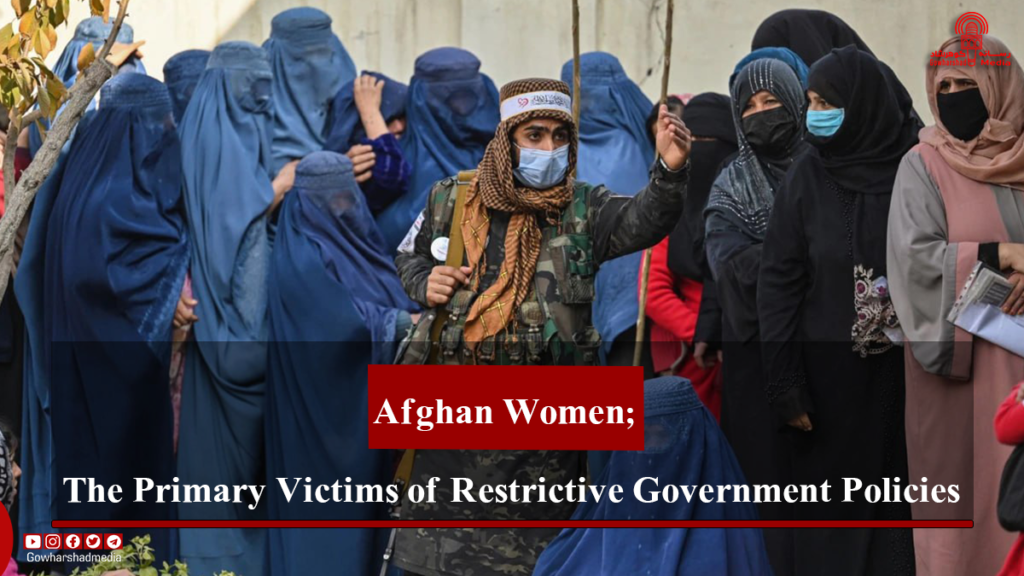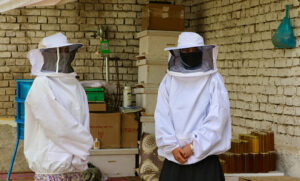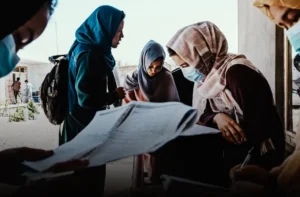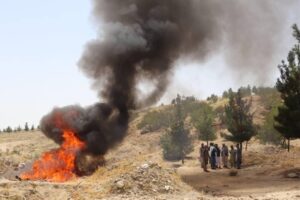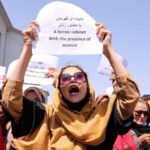Author: Mahdi Mozaffari
Since the current government’s resurgence in Afghanistan, we have witnessed widespread and unprecedented restrictions on the fundamental rights and freedoms of women. These restrictions, described by United Nations experts as “crimes against humanity” and referred to as “gender apartheid” by Afghan women activists, have severely impacted the lives of millions of women in Afghanistan.
In a recent joint report published by the United Nations Assistance Mission in Afghanistan (UNAMA), the UN Women’s section, and the International Organization for Migration, the dire consequences of these policies on Afghan women have been thoroughly examined. Researchers of this report have conducted hundreds of interviews with women across Afghanistan, providing a clear picture of the deplorable state of women’s rights in the country. Participants in this study spoke in detail about the challenges they face in accessing essential services, feeling secure, mental health, and social participation.
This report, prepared based on United Nations Security Council Resolution 2721, indicates that the current government’s policies not only violate women’s fundamental rights but also seriously undermine Afghanistan’s stability and development. The deprivation of women from education, employment, and participation in public life not only excludes half of Afghanistan’s population from development but also wastes the immense potential of the country. The international community and global institutions must take more serious actions to address this situation and support the rights of Afghan women.
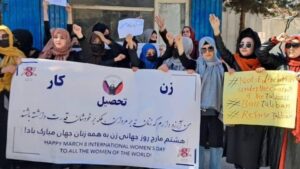
Lack of Access to Legal Mechanisms
One of the most striking consequences of the current ruling groups’ resurgence in Afghanistan is the widespread deprivation of women from access to legal mechanisms. Reports from international organizations, particularly the United Nations, paint a bleak picture of the status of women in this country. According to these reports, nearly all Afghan women have been deprived of both formal and informal dispute resolution mechanisms. Only a very small percentage (three percent) of women have claimed to have access to these mechanisms. This shocking statistic reflects the depth of the catastrophe that Afghan women are grappling with.
In addition to the lack of access to legal mechanisms, fear and terror also cast a shadow over the daily lives of women. Many women have acknowledged that they have had no interaction with local authorities of the ruling group due to fear of repercussions. This profound fear stems from the repressive policies of this group and the severe restrictions imposed on women. In fact, the current rulers of Afghanistan are attempting to deter women from demanding their rights by creating an atmosphere of fear and intimidation.
Beyond structural barriers, social obstacles also hinder women’s access to justice. Many women are forced to resort to influential men or religious leaders to voice their issues. This not only serves as a humiliation and insult to women but also highlights the deep-rooted gender discrimination in Afghan society. In reality, women in this society have been marginalized and deprived of their basic right to access justice. This situation poses a serious threat not only to women but to Afghan society as a whole, as half of the population has been stripped of their fundamental rights.

Deprivation of Women from Decision-Making Participation
The deprivation of women from the right to participate in decision-making is one of the regrettable aspects of the current regime’s rule over Afghanistan. This discriminatory policy has marginalized women and excluded them from all areas of social, political, and economic life. Afghan women, who once played active and influential roles in society, are now stripped of their most basic human rights.
Afghan women who have spoken with representatives of the United Nations have emphasized the depth of this crisis. They have stated that they have no role in any stage of decision-making, including the formulation of laws and public policies. This is particularly concerning as the laws enacted directly impact their lives and futures. However, women are not only unable to influence these laws, but they also cannot seek legal avenues to assert even the minimal rights that the ruling groups have allocated to them.
The current rulers’ governance in Afghanistan signifies a return to the Middle Ages for the women of this country. Before the rise of this group, Afghan women had an active and prominent presence in society. They participated in parliament, universities, media, and non-governmental organizations, playing a role in shaping the country’s laws. Now, however, women have been excluded from all public spheres, and their right to protest and express their opinions has been severely restricted. This situation not only harms Afghan women but also affects the entire Afghan society, hindering the country’s development and progress.
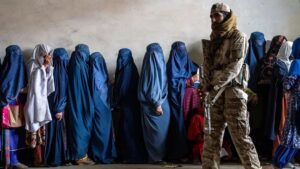
Feelings of Insecurity and Psychological Issues
The psychological crisis in Afghanistan, particularly among women, has reached extensive dimensions. According to a comprehensive report by the United Nations, feelings of insecurity within society have significantly increased. Sixty-five percent of Afghan women have acknowledged that they do not feel safe when leaving their homes alone. This shocking statistic reveals the deep-rooted fear and anxiety that permeate society. Even the presence of men accompanying women in public places does not fully guarantee their sense of security. This situation indicates the creation of an atmosphere of fear and restriction in the daily lives of Afghan women.
The severe restrictions imposed by the current rulers on women’s lives have had destructive and long-lasting effects on their mental health. More than half of the women participating in this study described their mental health as very poor or bad. Feelings of depression, anxiety, and isolation have been reported as the most common psychological issues. A recent speech by the leader of the ruling group defending acts of violence against women has intensified this crisis. Such statements have reinforced feelings of hopelessness and despair among women, presenting a bleak future ahead of them.
Schoolgirls and female students are among the most vulnerable groups in these circumstances. The deprivation of their right to education has inflicted irreparable damage on their futures, leading to widespread depression and hopelessness. The significant increase in suicide cases among girls stands as evidence of the profound impact of these policies. This situation not only harms the individual mental health of girls but also severely undermines the social and economic development of Afghanistan. Depriving half of the population of education robs the country of its tremendous potential.
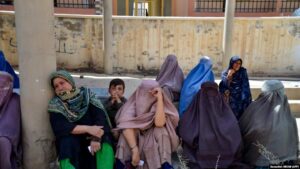
The Destructive and Inhumane Consequences of the Ruling Group’s Policies on Women’s Society Are Not Limited to Them!
Although the United Nations has primarily focused on the catastrophic effects of the current rulers’ policies on the lives of Afghan women, the devastating impact of this group extends to all aspects of Afghan people’s lives. In fact, the policies of the current group have led to a widespread humanitarian crisis in the country, with over two-thirds of Afghanistan’s population living in severe poverty and in urgent need of humanitarian assistance. Among this population, 17 million people are in very vulnerable conditions, and their daily lives are under serious threat.
In addition to the economic crisis, discrimination and human rights violations have also significantly increased. Religious and ethnic minorities, particularly the Hazara Shia, are increasingly subjected to persecution and are deprived of their basic rights. Civil and political freedoms have been severely restricted, and the public space is under tight control by the ruling groups. This situation has not only affected the daily lives of the people but has also caused serious damage to the country’s infrastructure and reversed development progress. Key sectors such as education, healthcare, and urban infrastructure have been severely weakened, jeopardizing the future of Afghanistan’s upcoming generations.
In summary, the policies of the ruling group have led to a multifaceted crisis in Afghanistan that requires serious attention from the international community and immediate actions to improve the humanitarian situation of the people in this country.

